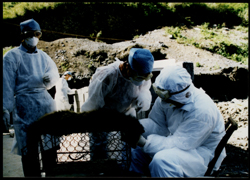
Chinese scientists recently called on the authorities to step up efforts in making a law to protect wildlife. In a letter signed by 22 CAS members, the scientific heavyweights urge the legislature to clarify the legal definition of wild animals, decide upon species that are allowed to be raised at farms, regulate trade of wild animals, strengthen their basic research and ensure their sustainable utilization. The law should have more extensive coverage than the existing wild animal conservation law, they say.
China is facing a depletion of wildlife resources, and a number of species are near extinction. While the scientists attribute the frustrating situation to overexploitation of the resources and the diminishing of their habitats, they also blame the culinary tradition in some regions that use wild animal meat as dishes for the acceleration of their illegal trade and overexploitation. This not only consumes large amount of the resources, but gives rise to a series of health problems, the scientists believe.
To cope with the problem, they put forward following five measures.
Clarifying the legal definition of wild animals and deciding upon the varieties of wild animals that allowed to be bred on farms. As a basis for protecting the resources, the scientists suggest, the resource could be divided into three groups: domestic animals and fowls, wild animals that can be bred on farms, and wild animals. A list should be made for the wild animals that could be artificially raised. Standards should be created as soon as possible in terms of raising facilities, nutrition, hygiene, and quarantine of wild animal husbandry.
Beefing up law enactment, enforcement and supervision regarding wild animal protection. Efforts should be stepped up to make a wildlife protection law, which should have more extensive coverage than that for the existing wild animal protection law.
Opposing eating wild game recklessly. Clarification should be made that it is forbidden to eat wild animals that are under state protection, un-quarantined or of unclear origin.
Enhancing basic research into wild fauna and flora and monitor their populations and habitats.
Regulating the wildlife exploration, and set up monitoring and quarantine systems for the production, sale and processing of wildlife to ensure the sustainable use of these resources.





